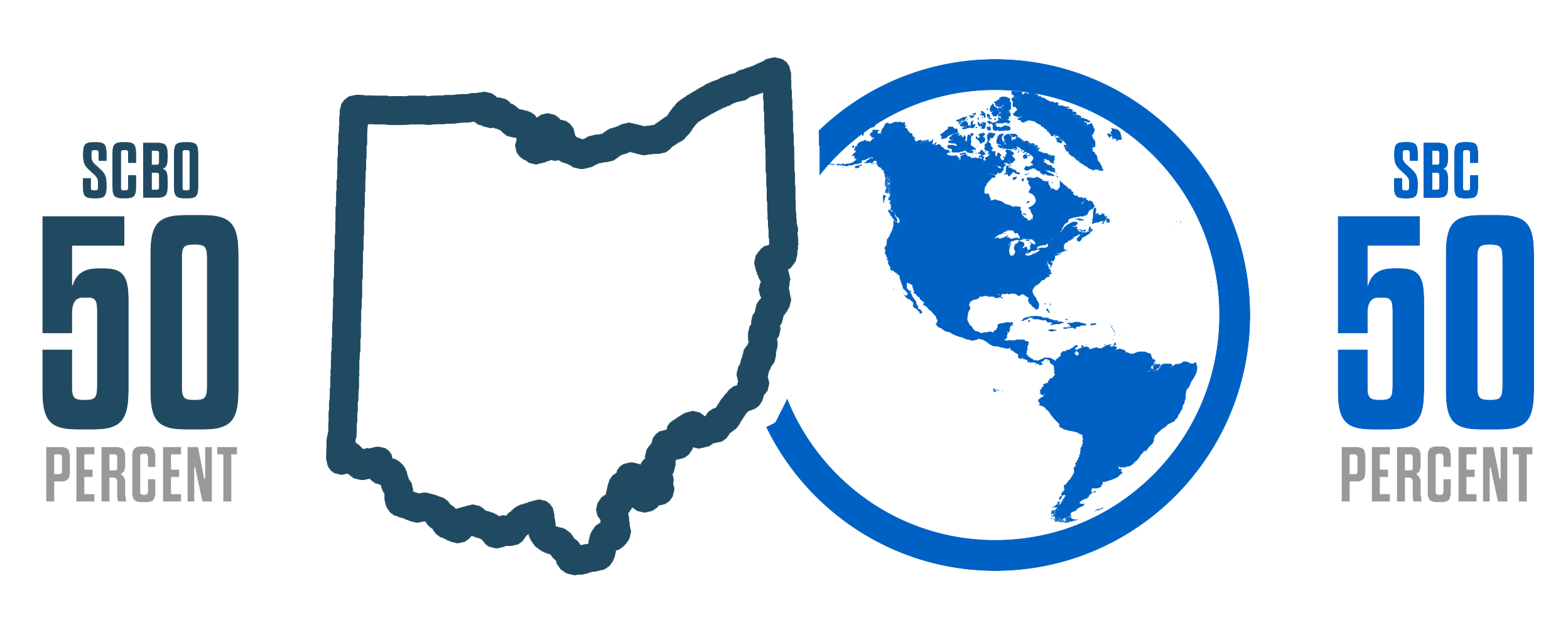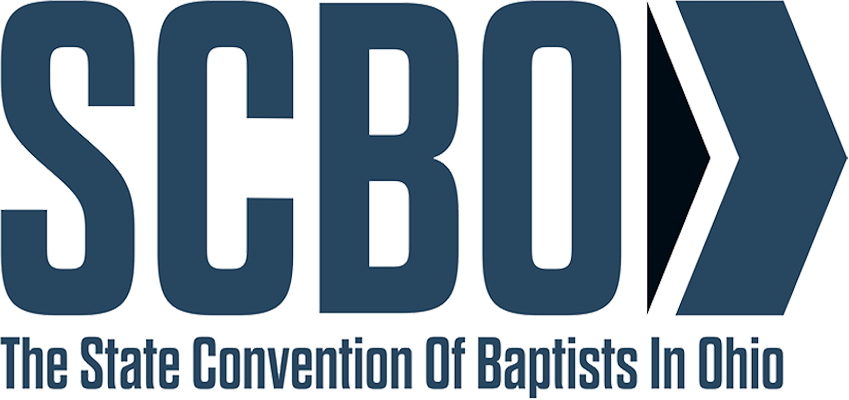
Through the Cooperative Program, the SCBO partners with the Southern Baptist Convention (SBC) to spread the Gospel of Jesus Christ and advance the Kingdom in Ohio and around the world.


The remaining 50% percent is invested into evangelistic ministries,
church planting, and church health/revitalization within Ohio.

Simply put, it begins with you. You give yourself first to God (2 Cor. 8:5). Next, out of gratitude and obedience to God for what He has done for you, you commit to give back to Him, through your church, a portion of what He provides. This is commonly called a tithe and represents ten percent of your income (Lev. 27:30, Mal. 3:10).
Your church decides the next step. Every year your church prayerfully decides how much of its undesignated gifts will be committed to reaching people in your state and around the world through Cooperative Program. This amount is then forwarded to the SCBO.
During the SCBO Annual Meeting, messengers from your church and other churches across the state decide what percentage of Cooperative Program gifts to be utilized within Ohio, and what percentage to be forwarded to the Southern Baptist Convention.
At the Southern Baptist Convention Annual Meeting, messengers from across the country decide how the gifts received from the states will be distributed among SBC entities. These gifts are used by Southern Baptist entities to send and support missionaries, train pastors, and other ministry leaders; provide relief for retired ministers and widows; and address social, moral, and ethical concerns relating to our faith and families.
The bottom line – people around the world hear the gospel and receive Christ.

Since its inception in 1845, the Southern Baptist Convention (SBC) has always had one mission—the Great Commission (Matt. 28:19-20). To fulfill its assigned part of this divine mandate, each SBC entity made special offering appeals to the churches. This method was referred to as the “societal” approach to missions and resulted in severe financial deficits, competition among entities, overlapping pledge campaigns, and frequent emergency appeals which greatly hampered the expanding ministry opportunities God was giving Southern Baptist. Some entities took out loans to cover operating costs until pledges or special offerings were received.
In 1919, the leaders of the SBC proposed the 75 Million Campaign, a five-year pledge campaign that, for the first time, included everything – the missions and ministries of all the state conventions as well as that of the Southern Baptist Convention. Though falling short of its goals, a God‐given partnership of missions support was conceived – The Cooperative Program. Since its launch in 1925, the effectiveness of the Cooperative Program has been dependent upon individuals, churches, state conventions, and SBC entities cooperating, working toward a common goal of sharing the gospel with every person on the planet.
The resources included below have been designed to help pastors and leaders share the Cooperative Program with their churches. Please download and utilize these tools as you see fit.

Jeremy Westbrook
Executive Director-Treasurer, SCBO
I am thrilled to share with you that SCBO churches gave $4,569,386 to the Cooperative Program in 2023, compared to $4,368,450 in 2022. That's an increase of over $200,000 or 5% in one year! Your faithful giving is helping us to send missionaries globally, plant churches nationally, and train the next generation of seminary students theologically.
Resources to teach your church about the Cooperative Program: https://www.sbc.net/missions/the-cooperative-program/#resources
Through the International Mission Board (www.imb.org), Southern Baptists support thousands of missionaries around the world. North American Missionaries, whose efforts are coordinated through your North American Mission Board (www.namb.net) and individual state conventions, provide ministries and support to countless people all over the continent. Six Southern Baptist seminaries (Southern, Southeastern, Midwestern, Southwestern, Golden Gate, and New Orleans) educate in excess of 16,000 pastors, missionaries, and future church leaders each year.

